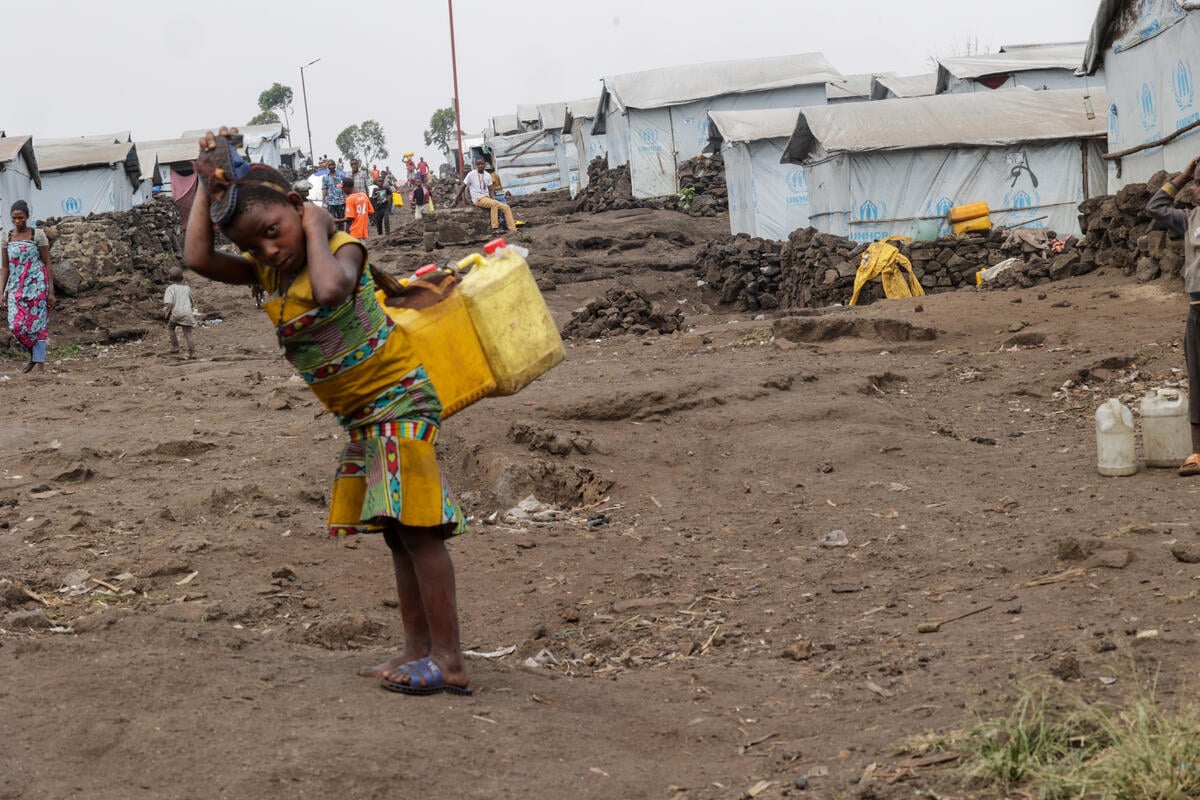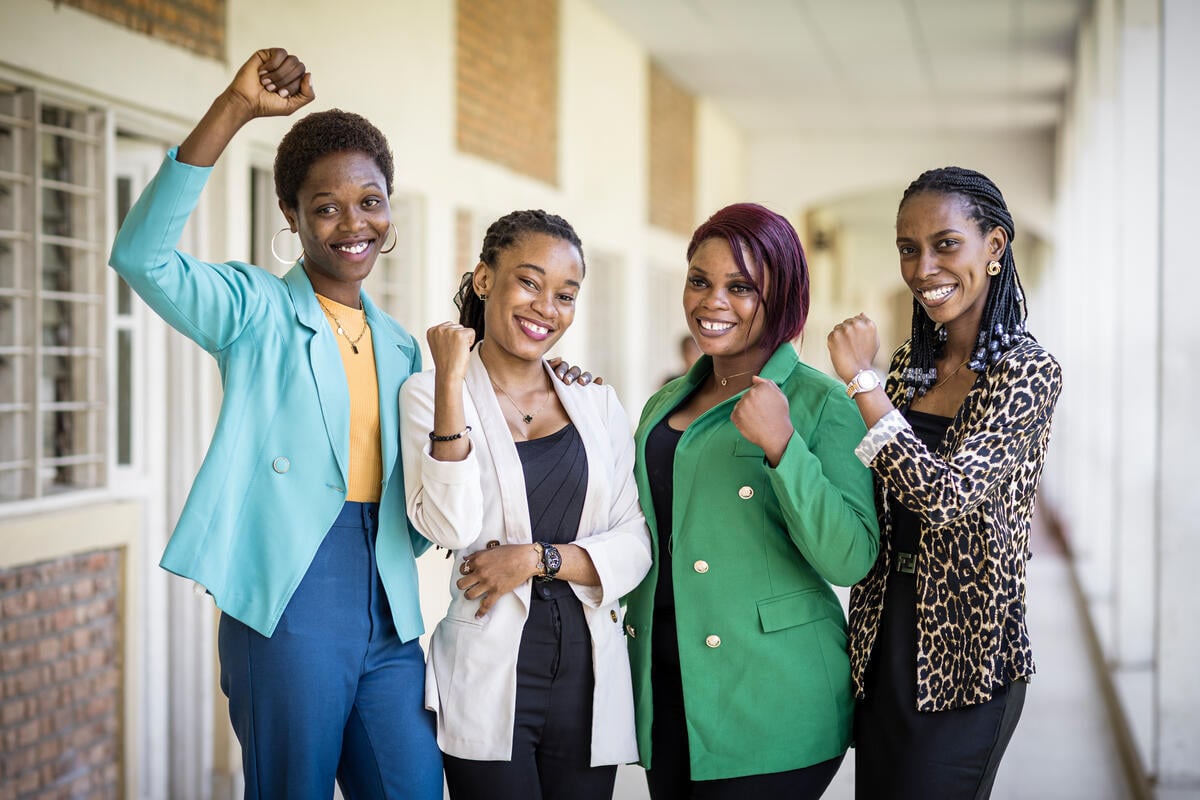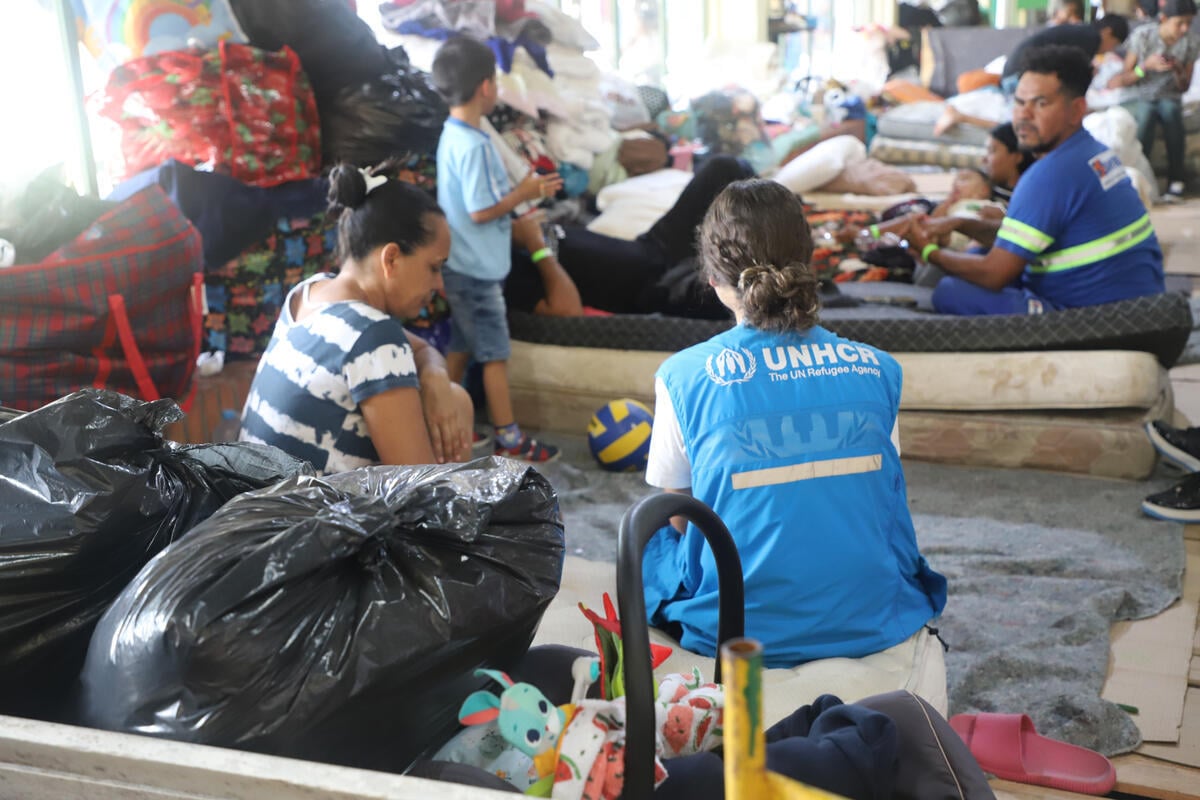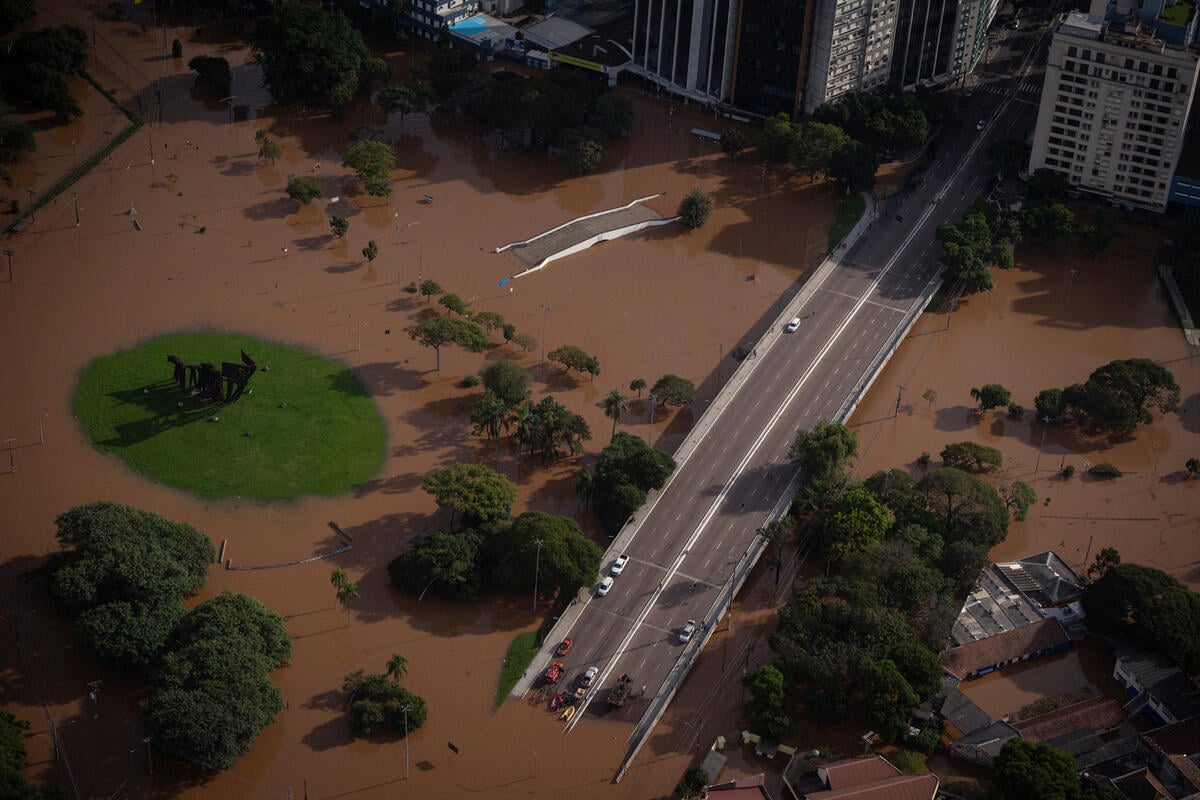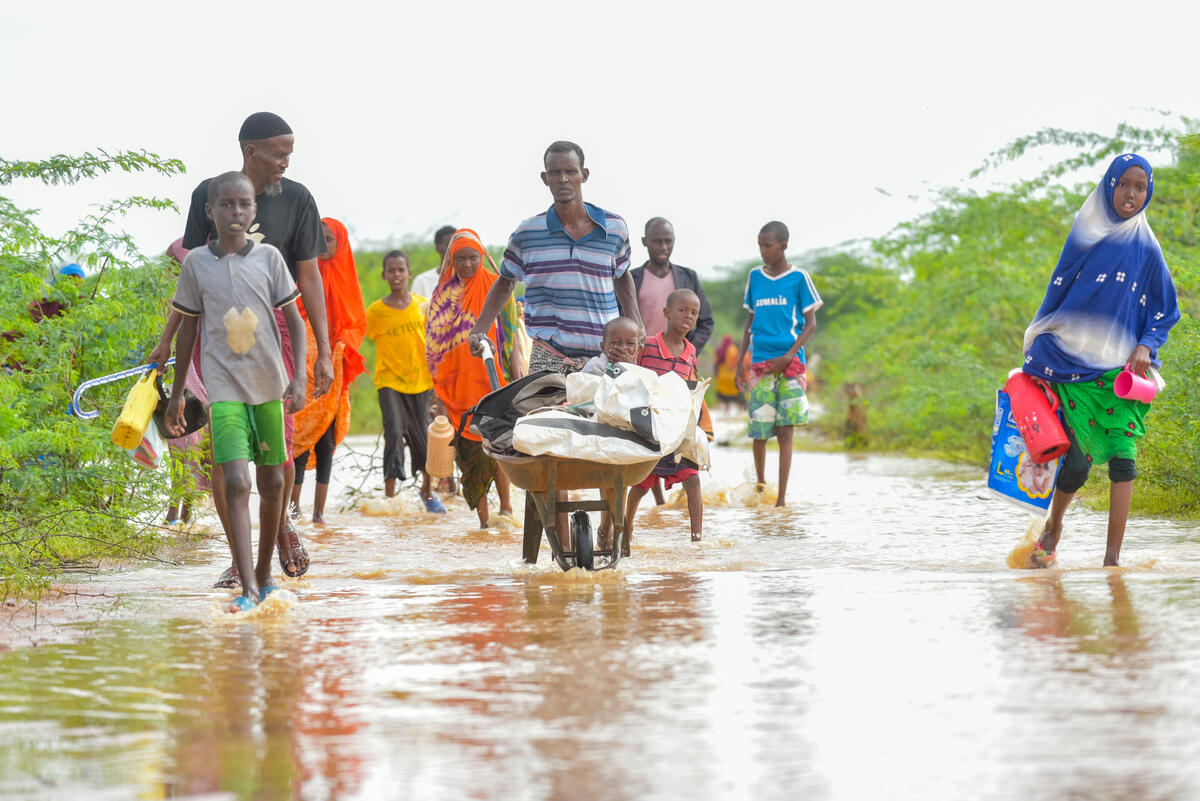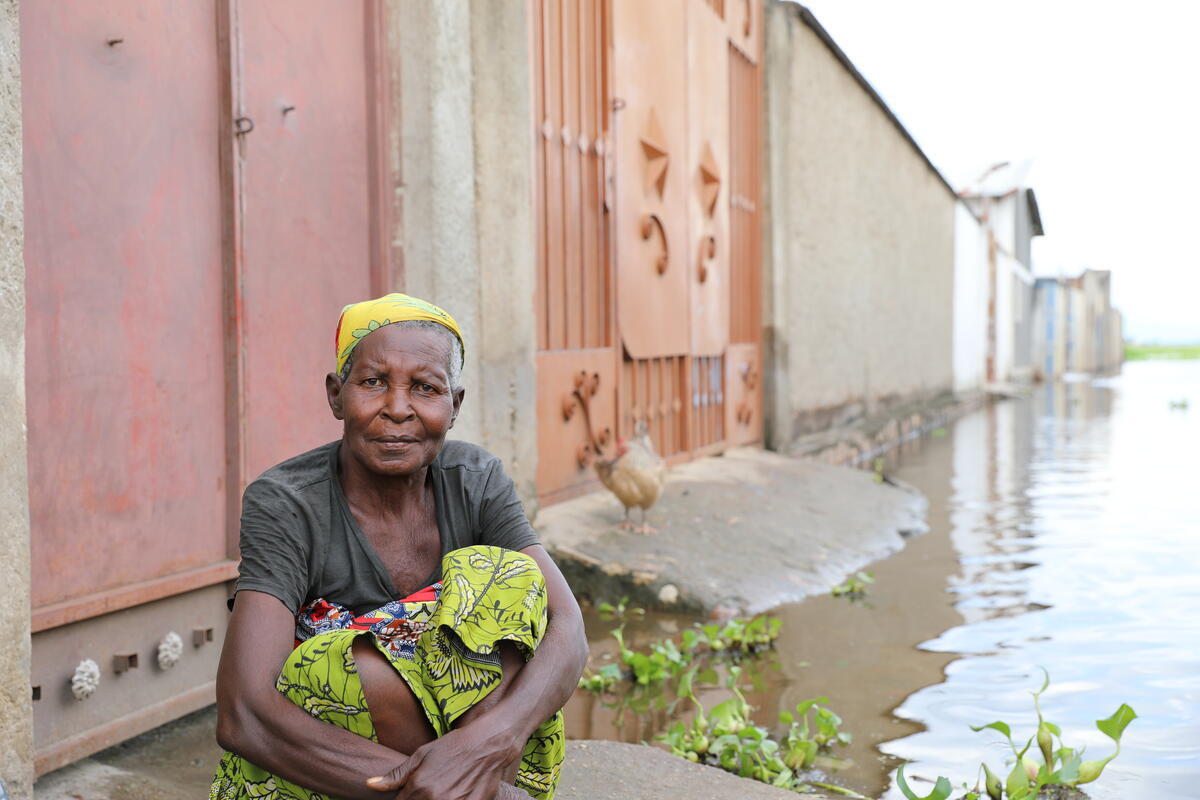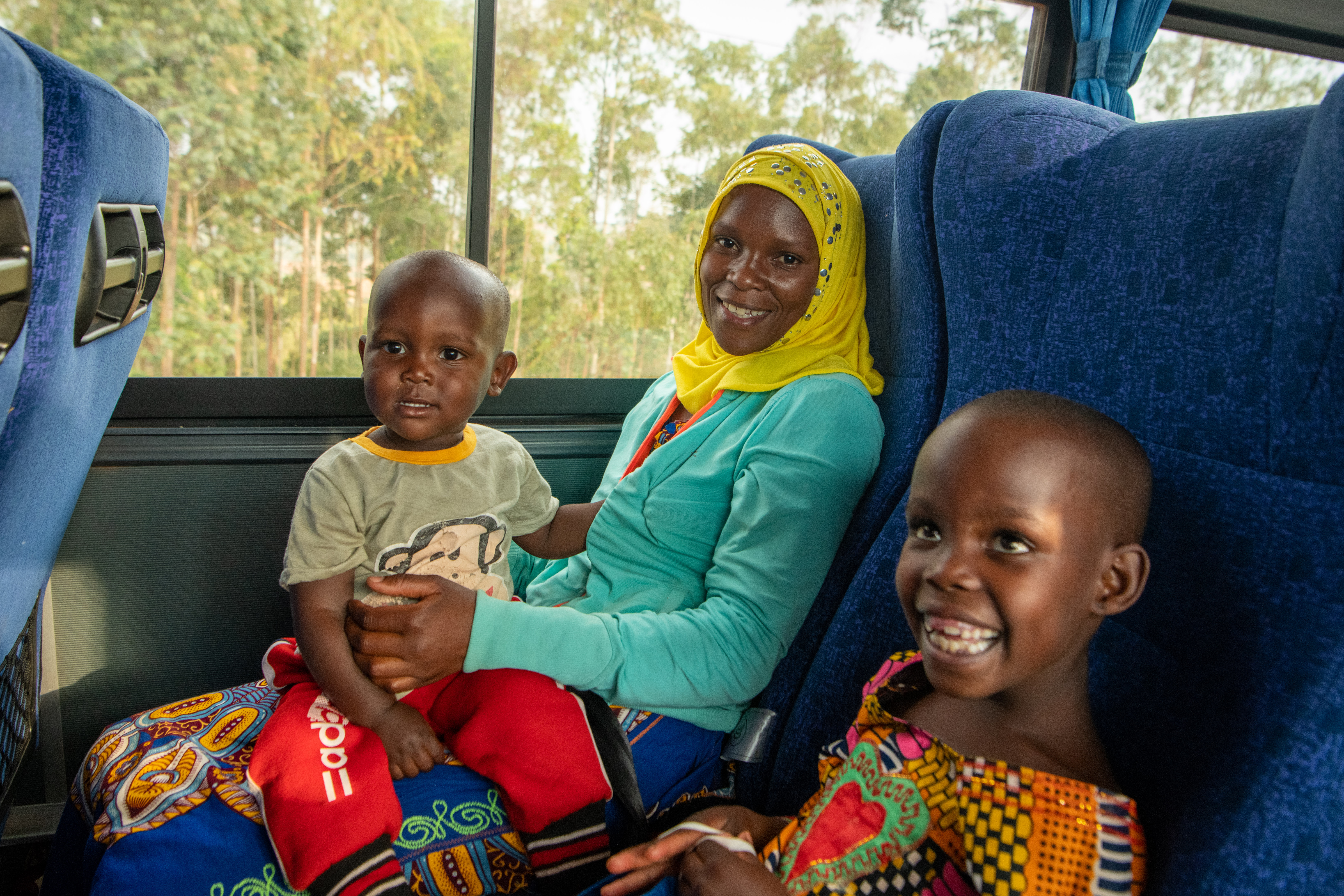Refugee and citizens share danger and generosity in Burundi
Refugee and citizens share danger and generosity in Burundi

BUJUMBURA, Burundi, April 22 (UNHCR) - The flood waters that swept through the capital of Burundi this year did not distinguish between citizens of Burundi and the thousands of urban refugees living among them. Neither did those who came to their rescue.
"Cady is my true family now because she is the one who really helped me when I was about to die," says Mama Furaha, an 80-year-old Congolese refugee who survived the February floods with her three grandchildren and two great-grandchildren, but lost most of her possessions.
Cady, a young single Burundian mother living alone with her daughter, immediately offered to take Mama Furaha and her family in.
"I knew Mama Furaha; her son was a friend of my father who passed away three years ago. They are now both dead. So I didn't hesitate to offer assistance after this tragedy," said Cady. "I think we were all affected and it was normal to share what little I have," Cady says. "It's only by luck that I didn't lose everything as well."
On the night of February 9 prolonged rain turned torrential, destroying thousands of houses. The damage was indiscriminate, affecting rich and poor, locals and foreigners, refugees and the host community. Bujumbura, capital of one of the poorest countries in the world, hosts more than 17,000 urban refugees, mainly from the Democratic Republic of the Congo.
"The situation was a matter of concern for all of us," says Catherine Huck, the UNHCR representative in Burundi. Two months later, an estimated 3,000 people are still displaced.
"The government of Burundi asked us to help," says Huck. "UNHCR Burundi responded first as a humanitarian agency and, second, because UNHCR rapidly realized that many urban refugees living in Bujumbura were also affected."
All those affected by the flooding were assisted, with UNHCR contributing non-food items through the government, including 5,900 blankets, 4,800 buckets, 2,000 jerry cans, 20,000 plastic mats and 4,000 mosquito nets.
Mama Furaha was among the recipients, getting items such as five blankets and four mosquito nets. She received other aid provided by the Burundian government to all victims of the floods, and neighbours gave her essentials like pans and kitchen utensils.
She had arrived in Burundi with her three grandchildren in 1999 when they were very young, after the death of her son, their father. Despite her meagre resources, she managed to educate them. John, her eldest, and Maria's mother Mandy, both have jobs. Elias, the youngest, attends secondary school.
After her hard life, Mama Furaha now wakes each morning in Cady's house to see the faces of her great-grandchildren. She cooks and watches over three-year-old Maria and nine-month-old Jackson. Apart from her family, the house was the only thing she had. Now, at the age of 80, Mama Furaha is ready to rebuild.
By Alix Nijimbere in Bujumbura, Burundi

